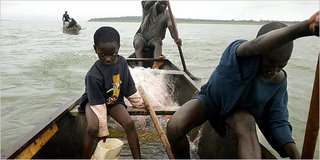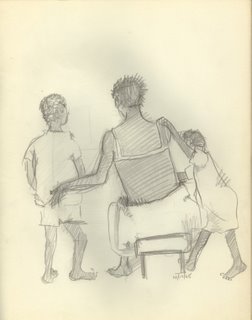
I love being surrounded by books. Words in profusion provide both insulation from the mean streets and transport to distant lands. Students sometimes scan the shelves of my office library and ask, "Have you read all of these?" Of course I haven't, though I've read most of them--some of them multiple times. I have referred to every one of them at least once, and I have a familiarity with all of them. My office book collection is dominated by volumes about composition, works of literary nonfiction, textbooks of all types, and books of poetry/about poetry. One shelf contains most of the books and magazines I published in. Another contains 5 or more copies of each issue of Snow Island Review, our student literary magazine, going back to 1991 when David Starkey and I established it. In the photo above, the two shelves below the back issues of journals contain the Steve Jonas collection--the books of poetry Steve sent me when he and Fran were divesting themselves of stuff before moving to Sicily a few years ago.
My current reading is, as usual, diverse. I've recently finished Edward Docx's The Calligrapher, one of the best novels I've read in years. The narrator, Jasper Jackson, is a calligrapher in London painstakingly copying a series of John Donne's poems for a rich buyer in the U.S. Each chapter is keyed to a different poem, and each contains an epigraph from Donne. The book is about Jackson's craft and about his relationships with women--one in particular. It's a stunning book, and one side effect is that it has sent me back to Donne's poems, urging me to read them in a different way. I've also recently read Ken Bain's What the Best College Teachers Do; I liked that one well enough to arrange for all new faculty members to have a copy. I've been dabbling in Ellen Gilchrist's stories because she'll be visiting FMU in a couple weeks, as will Andre Dubus III, which explains my immersion in House of Sand and Fog (assigned for my English 200 Honors students). I'm reading Fathom, a recent collection of poetry by Melissa Morphew, who was in my writing group in Columbia before moving to Texas. Also Chinese Architecture, by Aleda Shirley, a poet Beckie Flannagan has recently introduced me to. The John Ciardi translation of Dante's Inferno is on my desk because I recently brought Dante up in my poetry class as a master of terza rima, a form so difficult in rhyme-poor English, that many translations of Dante (including Ciardi's) do not attempt it. I wanted my poets to hear a little of Dante in translation before experimenting with three-line forms, including the villanelle, on their own.




